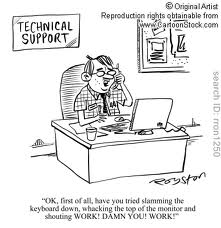Information Overload – too much information is making us less productive (and a lot less happy)
Posted by Andrew on Dec 6, 2011 in Economics and Finance, Uncategorized | 0 comments
THE culture of modern business needs to change with workers drowning under a deluge of emails and information, experts have warned. Corporations are failing to help staff cope with the technological barrage, daily meetings and constant connection, leading to rising levels of stress and psychological illness, not to mention
and costing
 billions in lost productivity.
billions in lost productivity.
Psychologists and experts say the information glut is becoming a major issue for firms who are searching for realistic answers to the problem. A recent report, commissioned by Hitachi Data Systems, found 40 per cent of companies in Australia and New Zealand are suffering from the information glut, up from 34 per cent two years ago. The report also
found 81 per cent of companies surveyed now considered it important to manage data growth, up from 68 per cent two years ago. The two biggest problems the report identified are:
1. Irrelevant information. The insidious use of the CC function on emailing.
2. A lack of adequate systems and processes to manage information efficiently. Most workers receive an average of 36 emails a day and huge volumes of other information.
Add to this social media, IM, meetings and the arrival of new technologies which employees are expected embrace to stay ahead of the game.
Solutions offered are often a combination of data-management technology, willpower, and embracing some common principles, such as only checking emails twice a day. The latest buzz word is information rage being unable to escape from a sea of largely irrelevant information.
McKinsey Management consultants recommend the following solution: Focus, Filter and Forget
Find time to focus, filter out noise and forget about work when you can.
news.com.au provides the following tips to deal with information overload 1. Cull reading material ruthlessly. Throw out anything you don’t need to read. 2. Focus on the quality of information, rather than quantity. 3. Set a time limit before using the internet. Only look up information you need. 4. Set rules for your emails so they are automatically organised into a relevant folder as soon as you receive them. 4. Planning a project or campaign often means trying to assimilate lots of data in different formats and from different sources. It’s often easier to organise this data visually – like a spider diagram or mind map. 5. Check emails and voicemails twice a day, at most. 6. Delete unwanted emails immediately. 7. Take regular breaks. Walk away from the machines. Giving the brain downtime to process information is a critical element of learning and thinking creatively. Read this article in full at www.news.com.au/business/ready-to-snap-information-overload-damaging-mental-health/




Recent Comments